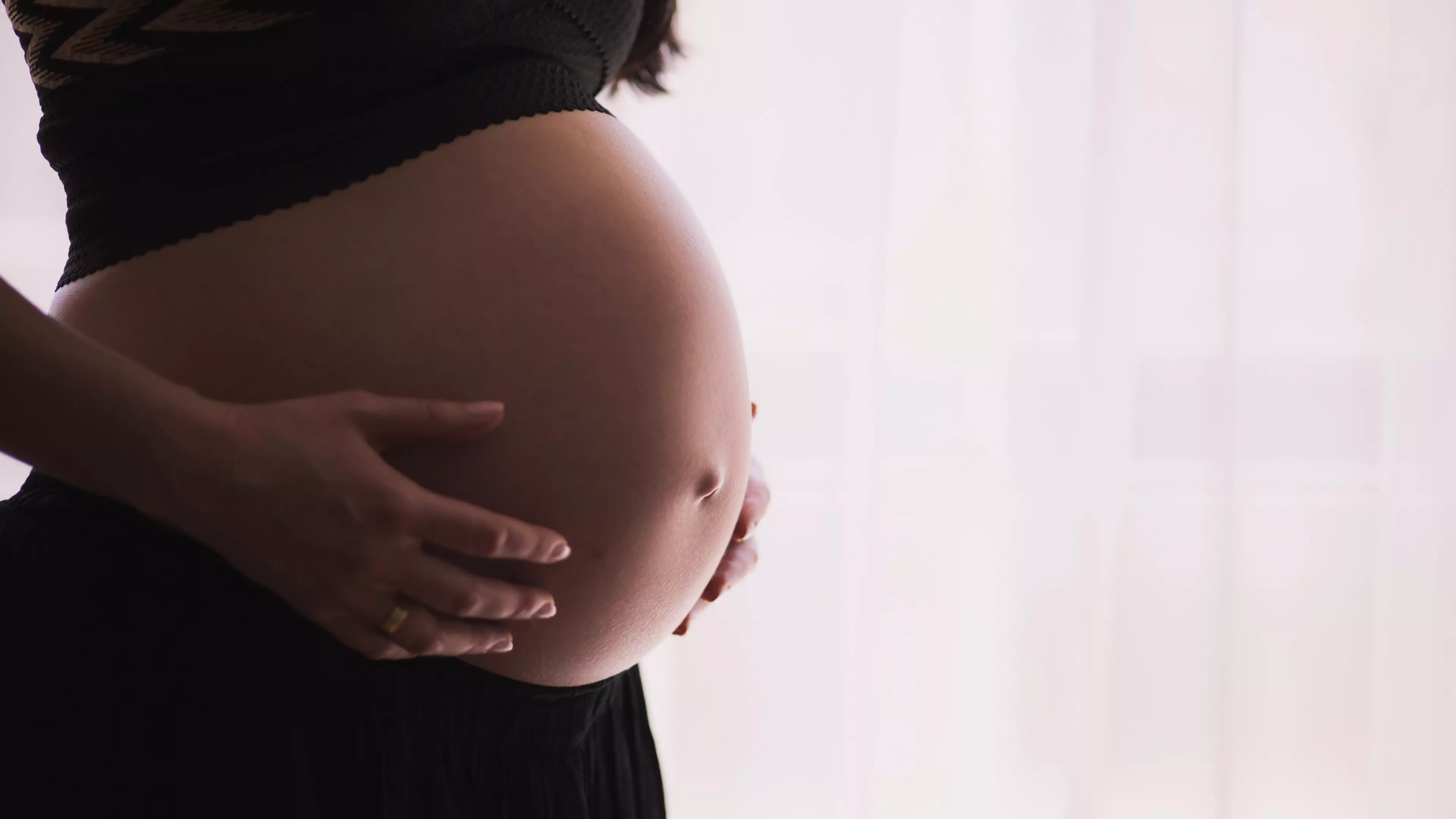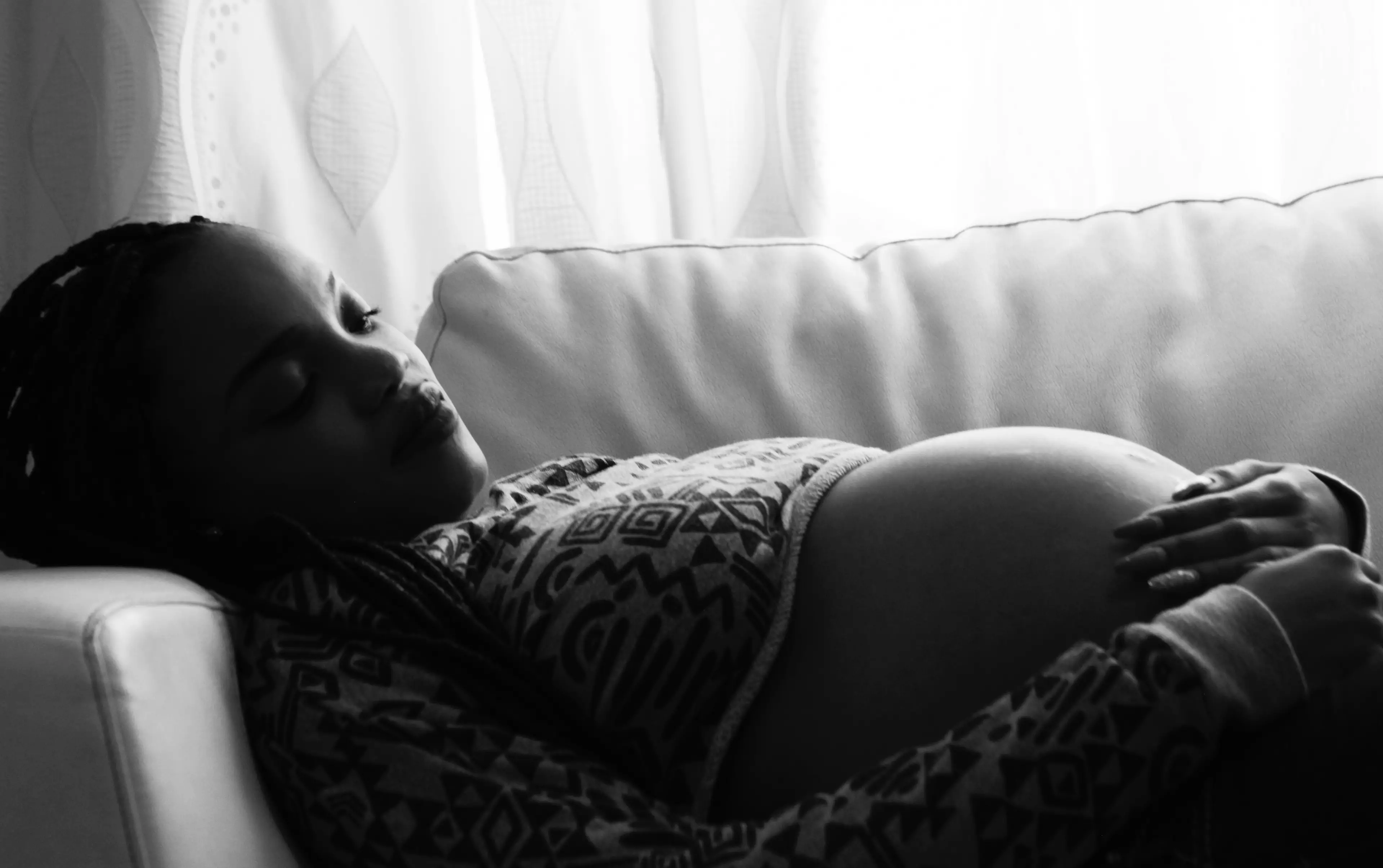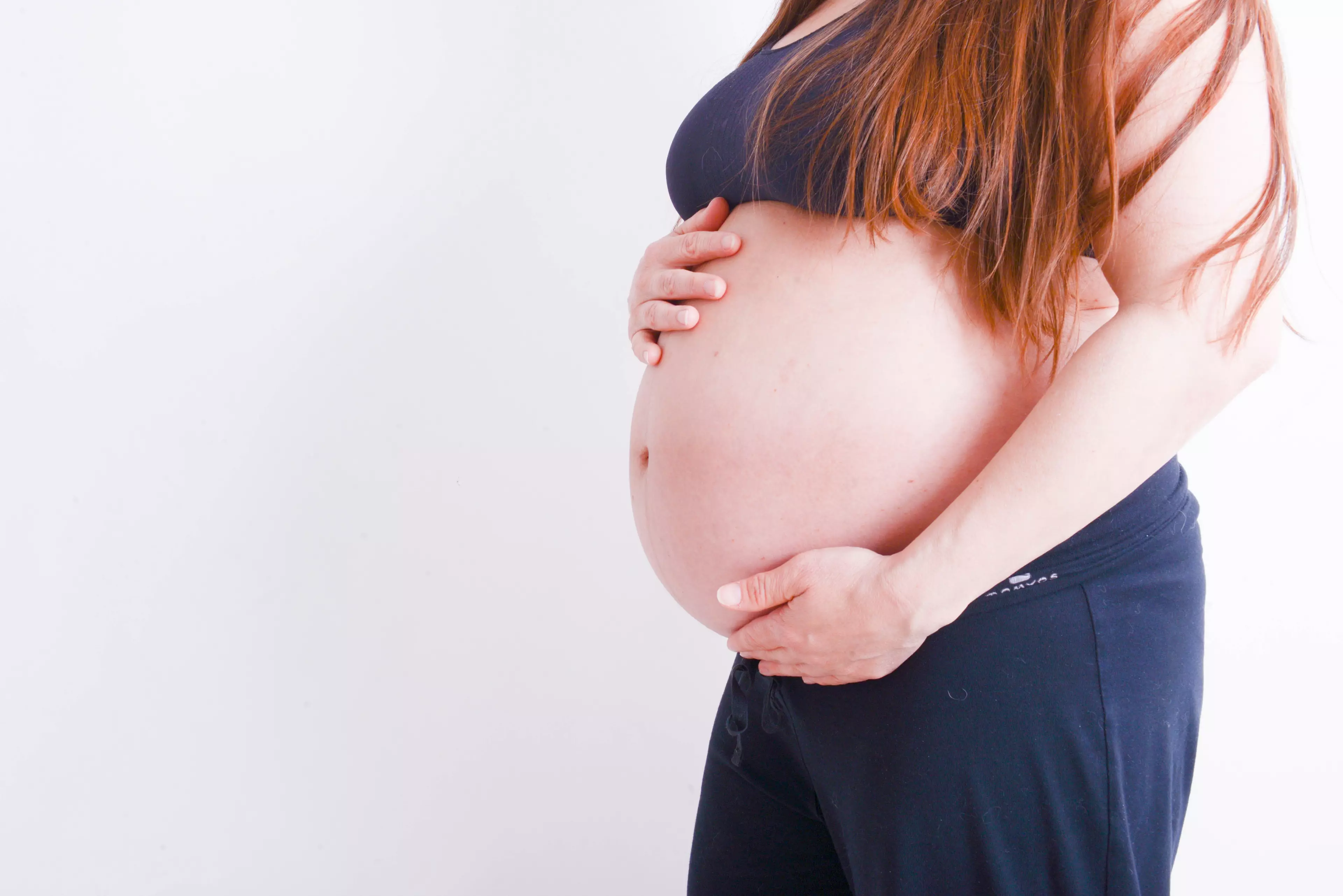
Most women will agree that some level of discomfort is to be expected during pregnancy - aches, pains, soreness, tenderness and irritation affect most mums-to-be.
But feeling like your pelvis is being broken in two? Well, that's not something that's covered in the pre-pregnancy manual.
We're talking about Symphysis Pubis Dysfunction (SPD), the condition that affects 31.7 per cent of pregnant women according to a study on NCBI.
Advert
Despite these high numbers, SPD is rarely spoken about, and recognition by doctors is still worryingly low.

Not to be confused with pelvic pain - which is thought up to 71 per cent of women - SPD is defined as acute pain in the symphysis pubis, the joint where the left and right side of the pelvis join at the front.
Women with SPD might experience uncomfortable pain over the pubic bone at the front and centre, across both sides of the lower back, in the perineum and down their thighs.
This pain can be worse when you are walking, going up or down the stairs, moving your legs apart or standing on one leg.
Advert
In more extreme cases, women have reported feeling like their pelvis is fractured or being bent in two. Some women can even experience grinding or clicking in the pelvic area.
The condition was in the news recently after Emmerdale star Charley Webb, who is expecting her third child, opened up on a the condition which has left her in "agony" throughout her pregnancy.

"I still get waves of sickness but I've also been diagnosed with SPD [symphysis pubis dysfunction, which affects your pelvis and back]," the soap actress told OK! Magazine.
Advert
She continued: "It's when your muscles have relaxed too much ready for the birth. It's agony," she explained, before later going on to add: "I'd be lying if I said I really enjoy the experience of getting bigger but I appreciate what my body is doing. I think pregnancy is amazing."
Reality TV star Maria Fowler also revealed she suffered from the condition during her pregnancy, and even had to wear crutches. At the time she tweeted: "Can barley walk now due to SPD and severe pain, I know it will all be worth it but this is so hard."

Most women recover from SPD they have given birth, but some can be left with ongoing or permanent problems with their pelvis.
Advert
The condition can occur in any pregnant woman, but women who have a history of lower back or pelvic pain, injury to the pelvis or a physically demanding job are at higher risk.
Depending on the severity of the pain, suffered may be given painkillers, or referred to a specialised physiotherapist who can provide therapy.

To ease the pain, the Pelvic Obstetric & Gynaecological Physiotherapy (POGP) network advises being as active as possible within you pain limits, resting where possible, getting help with physically demanding jobs, wearing flat shoes, sitting while getting dressed, and swivelling as you get out the car as opposed to opening your legs.
They also advise sleeping in a comfortable position, turning over carefully in bed and taking the stairs one at a time.
Featured Image Credit: UnsplashTopics: health news, Health